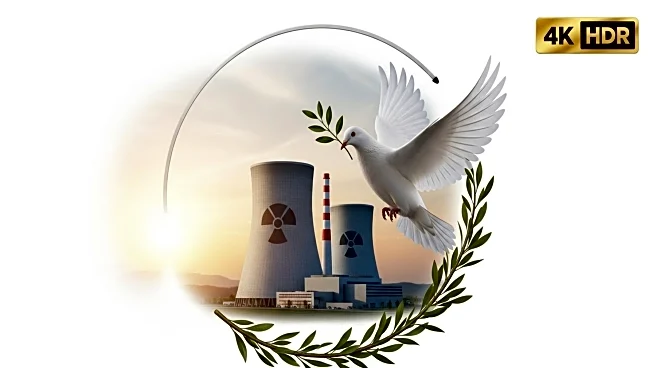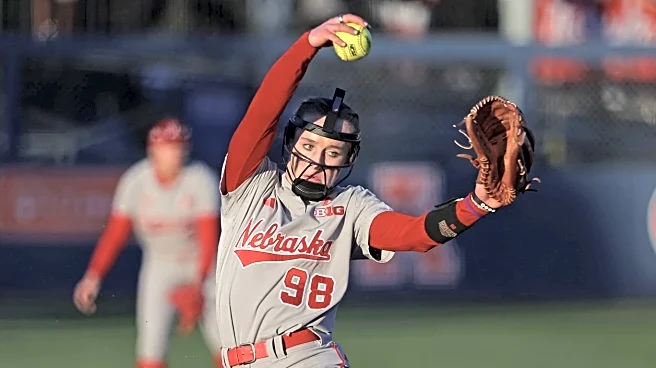What is the story about?
What's Happening?
The United Nations nuclear watchdog is advocating for local ceasefires between Ukraine and Russia to restore external power to the Zaporizhzhia nuclear power plant. The plant, located in a region under Russian control, has been relying on diesel generators since its last external power line was severed on September 23. The International Atomic Energy Agency (IAEA) has expressed concerns about the plant's safety, emphasizing the need for reliable power to cool its reactors and spent fuel. The IAEA proposes a two-phase plan to repair the main and backup power lines, with ceasefire zones established to facilitate repairs. However, while Ukraine has provided guarantees for safe passage, Russia has not yet done so, delaying the start of repairs.
Why It's Important?
The situation at the Zaporizhzhia nuclear plant is critical due to the potential risk of a nuclear accident if power is not restored. The plant's reliance on diesel generators poses a threat of a complete blackout, which could lead to fuel melting and radiation release. The ongoing conflict between Ukraine and Russia exacerbates the risk, with both sides blaming each other for attacks near the plant. The IAEA's efforts to mediate a ceasefire and restore power are crucial to preventing a nuclear disaster, which would have severe environmental and humanitarian consequences.
What's Next?
The IAEA continues to engage with both Ukraine and Russia to facilitate the reconnection of power to the Zaporizhzhia plant. The agency's experts are prepared to monitor the repair process once a ceasefire is agreed upon. The situation remains tense, with geopolitical dynamics influencing the progress of negotiations. The international community is closely watching the developments, as the risk of a nuclear incident could have far-reaching implications for regional stability and global nuclear safety standards.















